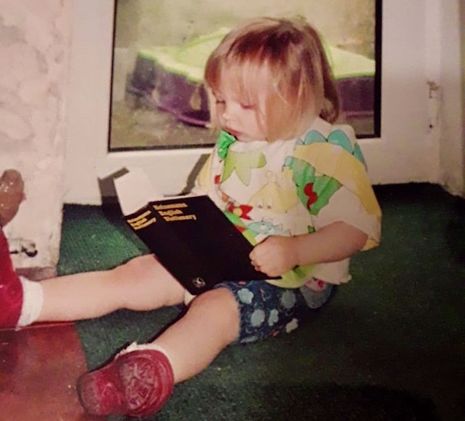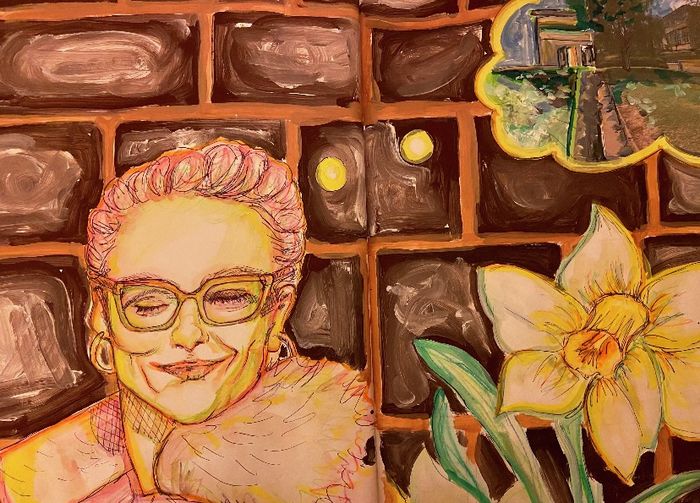Surviving through stories
As National Storytelling Week begins, Sasha Chown shares how having autism has supplemented her love for all things story-related

I think it’s fair to say that the phrase ‘creative writing’ does not have the most positive connotations. For many of us – myself included – it immediately sends us back to our school days; we are reminded of tedious hours spent staring at a blank page and desperately trying to divine inspiration from the excruciatingly bland prompts scribbled on a whiteboard. But, of course, creative writing is much more than this. It permeates every aspect of our lives, from the books and films we digest, to the diaries and blogs that we write. We are surrounded by it.
“Stories provided an escape from the real world which I found so challenging”
This is especially true for me. Recently, I have discovered that I am autistic; alongside providing a great deal of relief that I am not, in fact, mad as a hatter, this information has also shed light on the role that books and writing have played in my life. Anyone who knows me will at some point have heard me say that 'my books are my friends'. Granted, this sounds rather corny. But I stand by it.
As a child, I was fascinated by words. There is photographic evidence of me, not even eighteen months old, intently studying a dictionary (sadly, not an Oxford). Before I could talk, I would babble away to my toys, presumably telling them tales of wild adventures and daring escapades, or whatever a toddler’s equivalent is. Storytime was always the highlight of my day – and yes, I did have T'was the Night Before Christmas read to me every single night for a year.
This fascination with books and words deepened as I got older. Looking back, I now understand that the imaginary worlds of stories provided an escape from the real one which I found so challenging. Even now, I will calm my stress and anxiety by delving into a comforting fantasy novel, filling my head with dragons and sorcerers instead. Alongside reading stories, I also wrote my own. A particular favourite was a series of tales entitled The Adventures of Barney the Bear, a character I sent around the world to visit all the places that I wanted to go to someday. I created characters to become my friends because I struggled to form real human friendships, and I constructed worlds to give me something to control when it felt like everything in my life was spiralling out of it. Barney Bear, for example, was born at a time when we moved house four times in the space of two years.
“With my pen I have built entire worlds”
As a teen, I turned more to how language itself functions. My fixation on the specifics of grammar, the delights of syntax, and the meandering paths of etymology, remain as strong as ever – that’s why I’m doing a languages degree. Unlocking language felt like unlocking people; understanding linguistic nuances allowed me to better navigate the jungle of social interaction. I suppose I hoped that the more I knew about words – where they came from, how they function, their different meanings – the less confusing I would find people to be. Now, I realise that all I really achieved was to become the most hated person at dinner parties, forever ruining a punchline by clarifying that, well, technically it should be 'fewer' and not 'less', and, by the way, did you know that the word 'posh' may have started its life as an acronym?
More recently, creative writing has helped me a great deal with my mental health. I am not alone in saying that lockdown hit me hard. I was the lowest I have ever felt, but as a person with autism, I find it incredibly difficult to simply process my emotions, let alone vocalise them. But then I discovered poetry. It didn’t do anything miraculous like cure my depression and anxiety – mental illness doesn’t work like that, annoyingly – but it provided a release, an outlet to siphon off emotion before the dam inside me exploded. Poetry is the best way I have found to articulate myself. It feels so pure — as if I am cutting straight to the essence of a particular thought or feeling. When I am writing poetry, I am free.
Media stereotypes usually depict people with autism as Sheldon Cooper characters, obsessed with numbers and often lacking in imagination. I don’t want to go off on a tangent about gender discrimination in the medical world, but these stereotypes come as a consequence of a very narrow and male-centred view of what Autism Spectrum Disorder is. But this is exactly the point: it is a spectrum. Everyone’s autism presents in different ways; we are all unique.
My autism has gifted me with creativity. At times, it can be all too easy to focus on the negatives of autism, but it brings with it so many strengths, too. I am organised, I am efficient, I have an excellent memory. But most importantly, I can write. When I feel like autism hinders me, I remember that it has sparked my flair for language. Creative writing has not just been confined to stuffy classrooms and dull whiteboard prompts; with my pen, I have built entire worlds and entire characters which all glimmer on my pages with a living glow, often seeming more alive than actual people. My ability to write is what helps me to navigate this neurotypical world. It is as essential to me as breathing; I cannot imagine life without it.
 Comment / Plastic pubs: the problem with Cambridge alehouses 5 January 2026
Comment / Plastic pubs: the problem with Cambridge alehouses 5 January 2026 News / Cambridge businesses concerned infrastructure delays will hurt growth5 January 2026
News / Cambridge businesses concerned infrastructure delays will hurt growth5 January 2026 News / Cambridge academics stand out in King’s 2026 Honours List2 January 2026
News / Cambridge academics stand out in King’s 2026 Honours List2 January 2026 News / AstraZeneca sues for £32 million over faulty construction at Cambridge Campus31 December 2025
News / AstraZeneca sues for £32 million over faulty construction at Cambridge Campus31 December 2025 Interviews / You don’t need to peak at Cambridge, says Robin Harding31 December 2025
Interviews / You don’t need to peak at Cambridge, says Robin Harding31 December 2025










